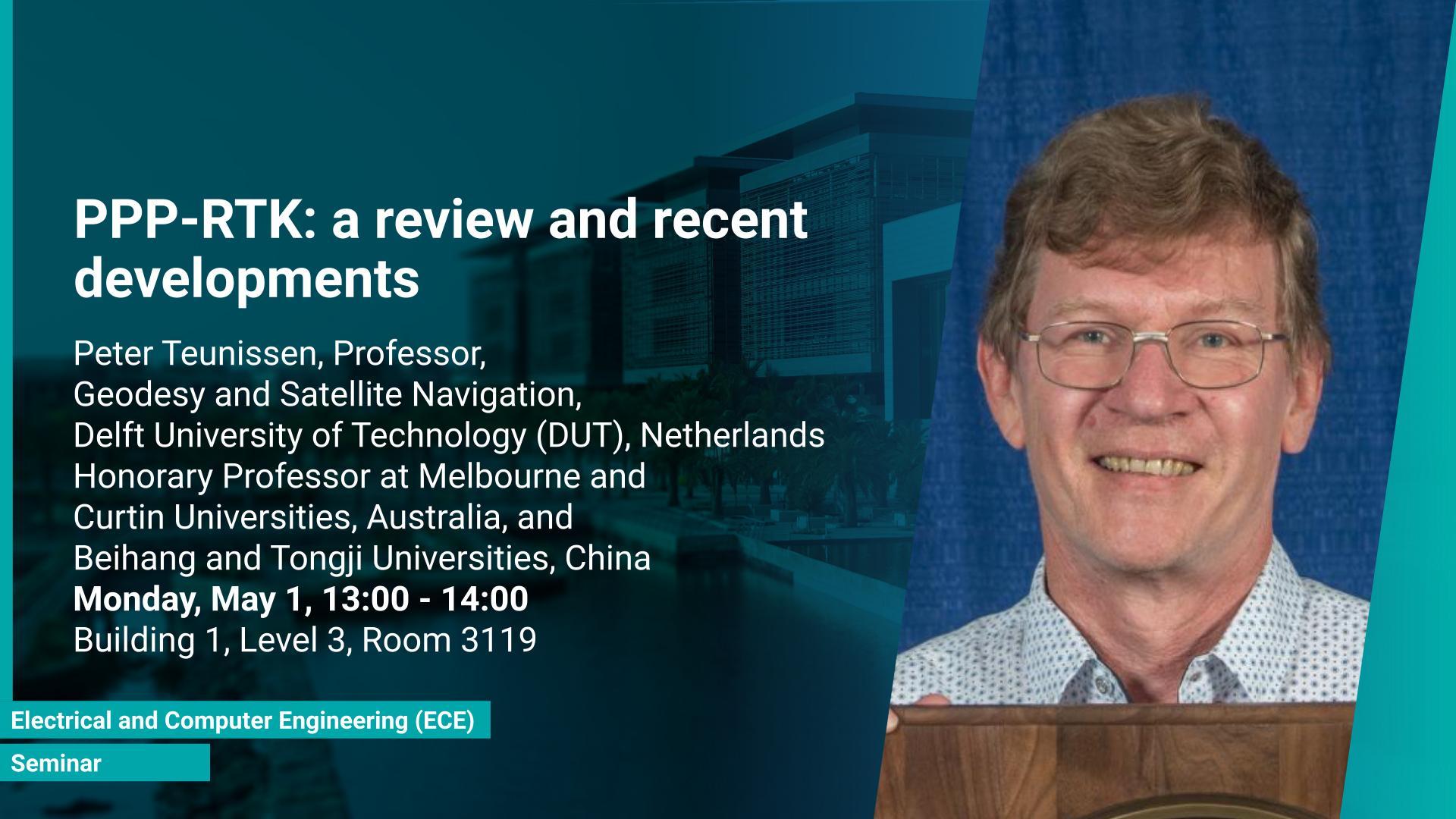Abstract
GNSS PPP-RTK is an integer ambiguity resolution enabled precise point positioning concept originally developed for use with the ultra-precise CDMA-based Global Navigation Satellite System carrier-phase signals. In this presentation, we first present the classical principles of PPP-RTK as they apply to the CDMA-based global and regional satellite navigation systems GPS, BeiDou, Galileo, QZSS and IRNSS. Then we review the recently developed integer-estimability theory that allows extention of classical CDMA PPP-RTK to a general form of PPP-RTK thus making it applicable to satellite and terrestrial applications for which the transmitter frequencies are not CDMA-constrained. Such examples that will be discussed are terrestrial LTE networks and satellite systems like GLONASS and LEO-based systems such as the proposed KEPLER system.
Brief Biography
Peter J.G. Teunissen is Professor of Geodesy and Satellite Navigation at Delft University of Technology (DUT), Netherlands, and Honorary Professor at Melbourne and Curtin Universities, Australia, and Beihang and Tongji Universities, China. His research is focused on developing theories, models, and algorithms for high-accuracy geospatial applications of new global and regional satellite navigation systems. He has authored numerous journal papers and textbooks in the field. His contributions include statistical and numerical methods of integer inference theory, innovative algorithms for multi-GNSS precise parameter estimation, and the early characterization and utilization of the Chinese BeiDou, the Indian IRNSS, and the Russian GLONASS CDMA system. His scientific contributions have been recognized through various awards, including the IAG Bomford Prize, NWO Huygens Award, Alexander von Humboldt Award, ION Kepler Award, and EGU Vening-Meinesz Medal. He serves on the Editorial Boards of several journals, is founding Editor-in-Chief of Journal of Geodesy, and has recently been elected Vice-President of the IAG. He has an Honorary Doctorate Degree from the Chinese Academy of Sciences (CAS) and is Fellow of the International Association of Geodesy (IAG), the UK Royal Institute of Navigation (RIN), the USA Institute of Navigation (ION), the International Union of Geodesy and Geophysics (IUGG) and the Royal Netherlands Academy of Arts and Sciences (KNAW).
